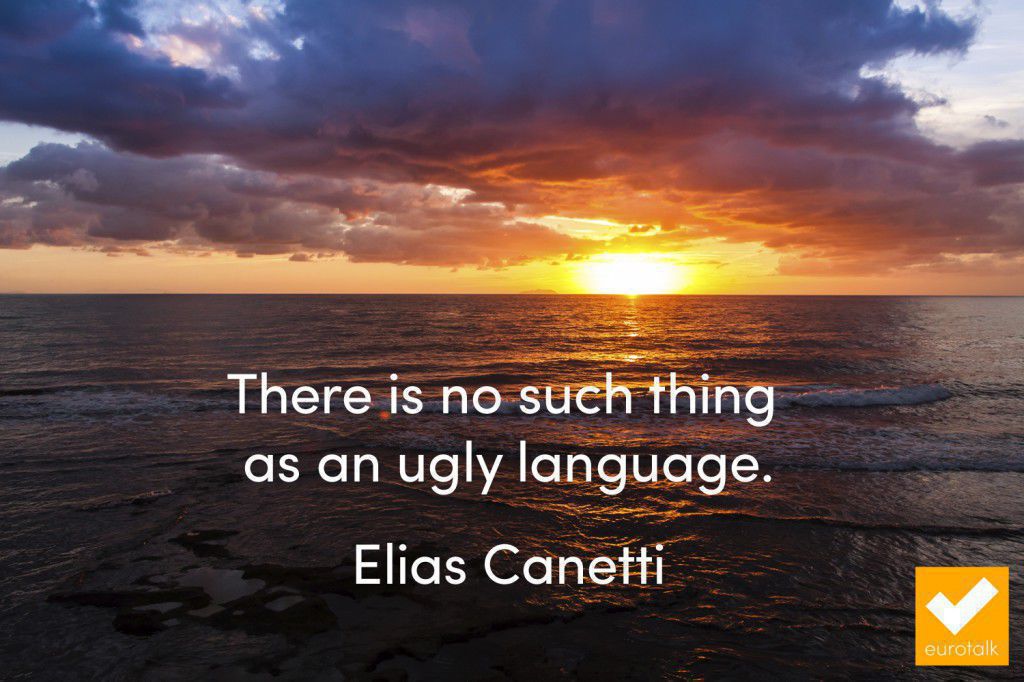A little language goes a long way
As marketing manager here at EuroTalk, it’s my job to tell everyone how great our products are. But from time to time, I need to use them for myself and I get reminded all over again just how useful they are.
 Last weekend I spent a few days in Naples, Italy. I was determined before I left to try and speak a little bit of Italian; after all I spend most of my time telling other people they have to speak the local language, not to mention it just seemed like the polite thing to do. As it turned out, it was also quite necessary because to our surprise, although it’s a pretty touristy area, not many people spoke English. Fortunately I’d come prepared with uTalk on my phone, and it turned out to be invaluable.
Last weekend I spent a few days in Naples, Italy. I was determined before I left to try and speak a little bit of Italian; after all I spend most of my time telling other people they have to speak the local language, not to mention it just seemed like the polite thing to do. As it turned out, it was also quite necessary because to our surprise, although it’s a pretty touristy area, not many people spoke English. Fortunately I’d come prepared with uTalk on my phone, and it turned out to be invaluable.
I left home with no Italian at all, apart from the basics – ‘ciao’, ‘grazie’ and ‘per favore’ were the first words I tried out (all included in the free version of the app). I’d also learnt the numbers up to three in advance, so I could ask for a table in restaurants. Pretty soon I realised I also needed to know ‘una bottiglia d’acqua’ because it was quite hot and sunny (when it wasn’t pouring with rain), and some higher numbers so I knew how much money I was being asked for. So out came uTalk for a quick revision session.
The first time we went to a restaurant, the waiter spoke some English and somehow identified us as Brits the moment we walked in, so my contribution was fairly limited, although I was insistent that I wanted to say what I could in Italian. The following night, I managed to ask for the bill, thanks to a quick check of my phone. And by the last night, I was able to order dessert by describing what I wanted (‘una torta de fragole’) and was astonished and delighted when the waiter brought me exactly what I wanted without any confusion. (We also got free limoncello at that restaurant – although I think they might have given that to everyone.)
Our main challenge in Naples was figuring out the ‘funicolare’ – which, by the way, is the weirdest way I’ve ever travelled. (For those who aren’t familiar, it’s basically a little train/car that carries people up and down the mountain – but on the inside and at a 45 degree angle. It’s quite surreal.) I’ll admit there was a bit of English used when I asked the man in the station how it all worked the first time, but then after another quick check of uTalk, I managed to buy us three tickets (‘bigliettos’) from the slightly intimidating lady in the little shop next door.
None of my conversations were particularly long or profound, but every time I said something in Italian and the person I was speaking to understood me, I gained a little bit of confidence. By the time I left, I was quite looking forward to these little exchanges, and was a bit disappointed if someone talked to me in English. There were a lot of Brits around, as we were all there for the Davis Cup tennis (the less said about that the better) and we witnessed a few fellow tourists adopting the ‘talk louder in English’ approach, not to mention quite a lot more standing around looking very confused in the funicolare station. So it was quite satisfying to know that we’d made the effort; the locals I spoke to certainly seemed to appreciate it. And yes, there were a couple of occasions when they thought I knew more than I did and started chatting away in rapid Italian, but somehow I managed to fumble my way through it (‘non capisco’ – I don’t understand – is another important phrase to learn).
It’s always useful to learn a few words before you leave for your holiday, but for me the most useful thing about uTalk was that I always had access to the vocabulary – written and spoken – whenever I needed it. I wouldn’t necessarily have thought to look up ‘strawberries’ and ‘cake’ before I left, for example, so without uTalk I might have missed out on this amazing dessert. And that would have been a tragedy.
How learning a language can help your career
 “Learning a different language has made me the person I am today. I enjoy working with global brands in over 18 different countries, and leading a team specialised in 5 different markets.”
“Learning a different language has made me the person I am today. I enjoy working with global brands in over 18 different countries, and leading a team specialised in 5 different markets.”
Sarah works as a Multilingual Search Manager at Search Laboratory, and she’s taken time out to tell us why and how learning a language has helped her develop her career.
Q. Your experience of learning a language…
– When did you start?
I started learning another language at the age of seven, when my family moved to Germany. I often say that I learnt the language by watching TV, but it was actually a combination of listening (which did involve TV), reading (mainly as schoolwork gave me no choice – I wasn’t the bookworm then that I am today), and being thrown in the deep end. If there’s no other communication option around you, you will pick up a language. It just might take some time.
– How did you get into languages?
I got into it through video tapes for children designed to help learn a second language, and then through tuition and being surrounded by the language in everyday life. For the first six months of living in Germany I went to an English school, but then transferred to a German one, so speaking the language was a must for grades, making friends, and just generally communicating.
– What was hard?
The first few months were pretty tricky. I’m known as a bit of a chatter-box (this is likely to come across in my answers), so not being able to communicate was tough, but also an incentive to just try the language and learn by doing. The best way to learn a language is to speak it. It’s also the scariest thing about learning a language.
These days the main challenge is remembering the right word for the right language. With two languages buzzing in my head, I can often recall the perfect word for what I want to say, but in the wrong language for the situation.
Q. How you have found being multilingual useful when searching for employment and building a career?
 Being multilingual has been very useful for my career, as it’s given me more options, and I think it’s also helped me stand out a bit in the employment crowd. This was especially true when I was younger, and just starting out. Though multilingual isn’t as unusual as you think these days.
Being multilingual has been very useful for my career, as it’s given me more options, and I think it’s also helped me stand out a bit in the employment crowd. This was especially true when I was younger, and just starting out. Though multilingual isn’t as unusual as you think these days.
It was also a way for me to narrow down my career search. I knew that I wanted to be part of a company that provided opportunities for multilingual speakers, and was equally interested in different cultures and understanding different markets.
Q. How do you use languages in your everyday role as a Multilingual Search Marketing Manager?
I manage our French, Spanish, Italian, Russian and Chinese team, so the language alone doesn’t help out; however, the language experience is vital. I feel that because I went through learning a language and living in a different country that I’m more empathetic to and understanding of the struggles of day to day life (or at least some of them – the team may disagree).
I also think that the language experience has made me very inquisitive about other cultures, and languages, which really comes in handy when looking into the differences of search behaviour and trends in other markets.
Q. Why do you think more people should learn more languages?
Because it’s great fun! And because it can open up career opportunities that you hadn’t even thought of yet.
I sometimes forget that I’m classed as multilingual as having more than one language is natural to me, to my family, and most of the people I work with. I think I’d be pretty bored if I only had one language to rely on.
Also, looking back and seeing all the opportunities I might have missed out on, is a bit of a scary thought.
I’m excited to learn more languages, though can’t decide of the languages which my team speaks, which one to start with. There’s just too much choice!
Do you use languages at work? Have you found knowing more than one language has helped you in your career?
Quote of the week: 5 Apr 2014
For more like this, visit us on Pinterest.
Embed This Image On Your Site (copy code below):
8 common language mistakes to avoid [infographic]
When you’re learning a new language, it’s easy to make mistakes. And that’s ok; it’s the best way to learn. But sometimes you might think you know what you’re saying, and actually you’ve said something very different. Here are a few examples to look out for…
Please let us know your own examples and as always, do feel free to share the infographic with others.
Infographic created by Adam (research) and Luke (design)
Embed This Image On Your Site (copy code below):






